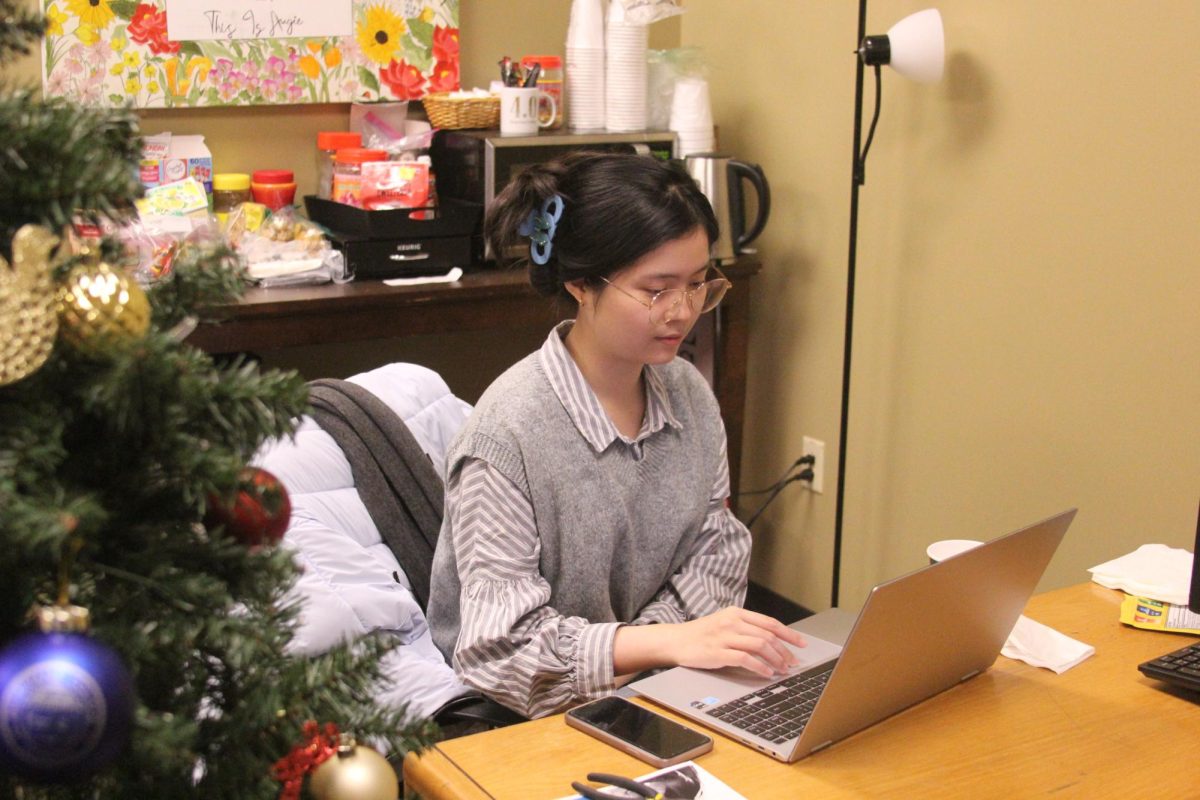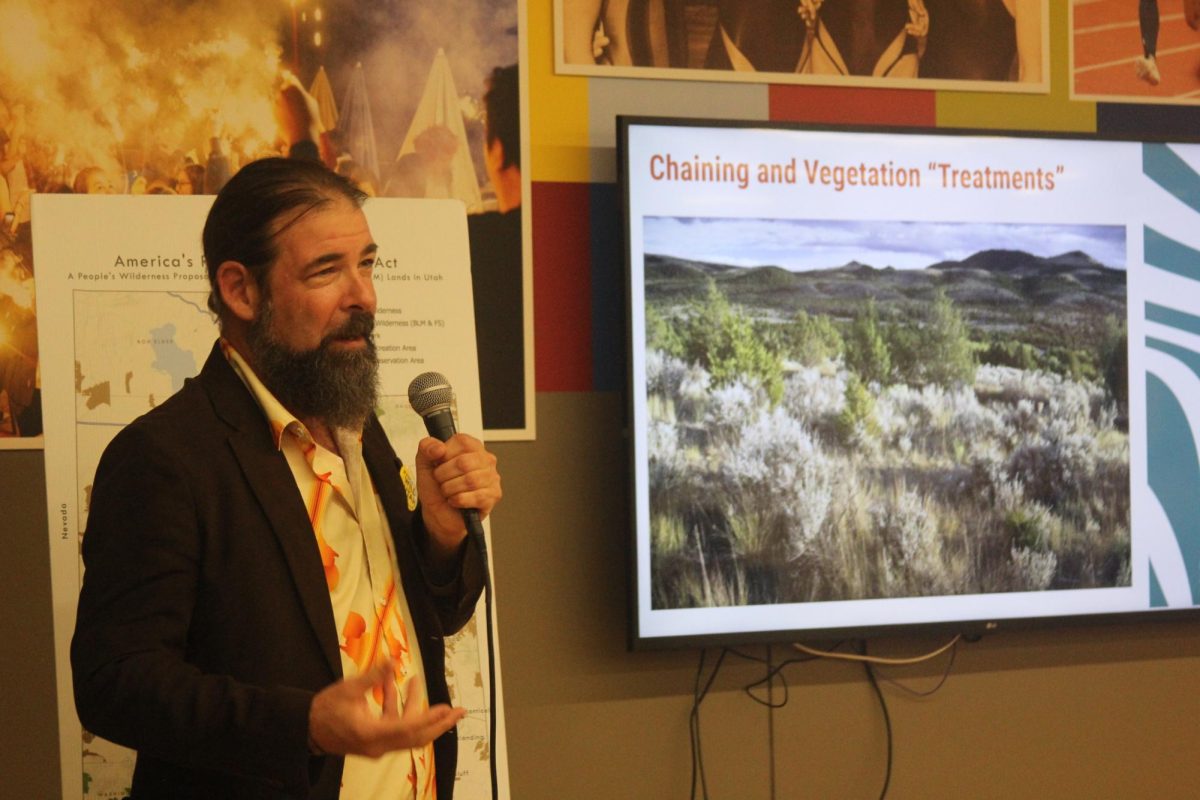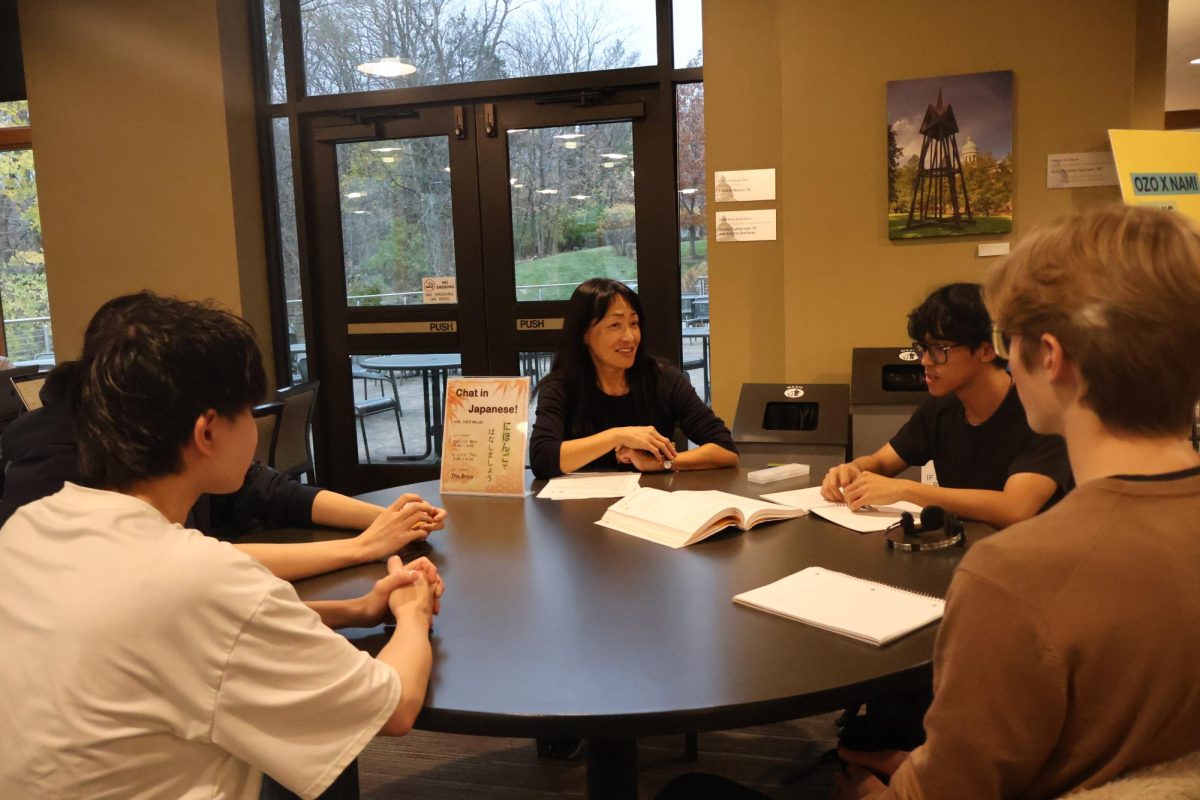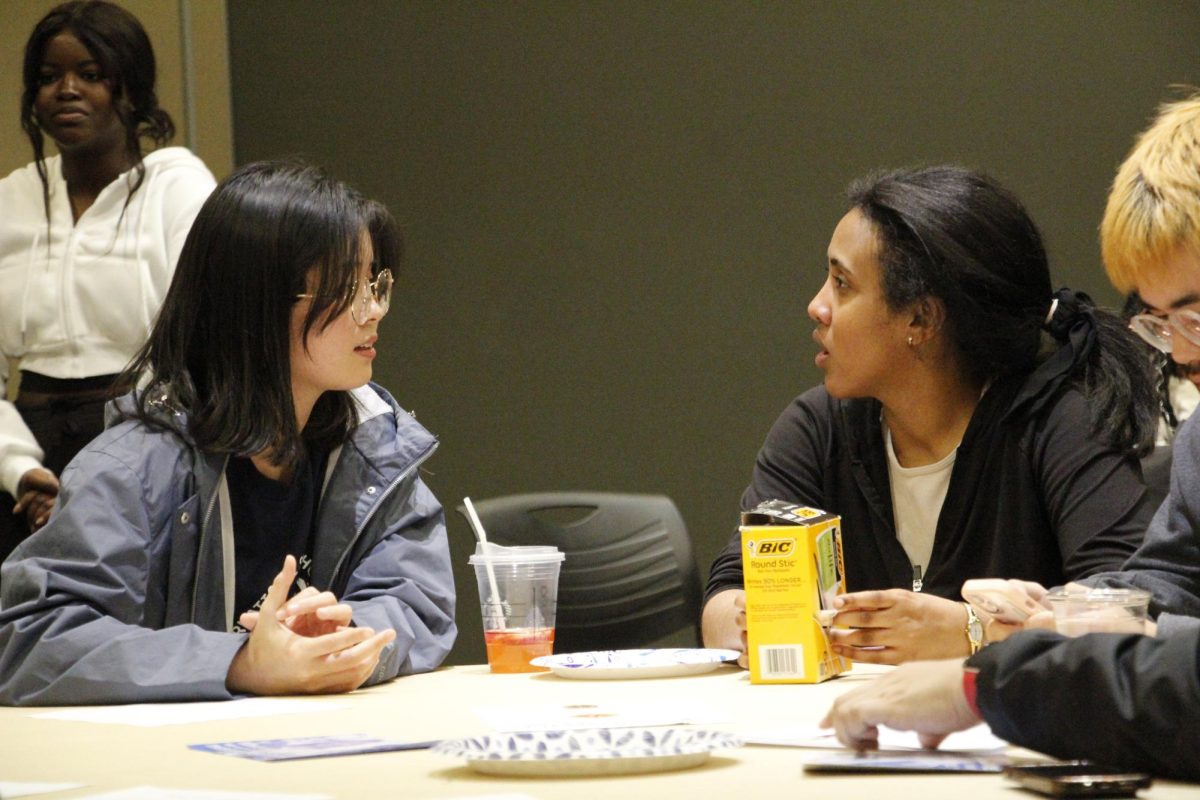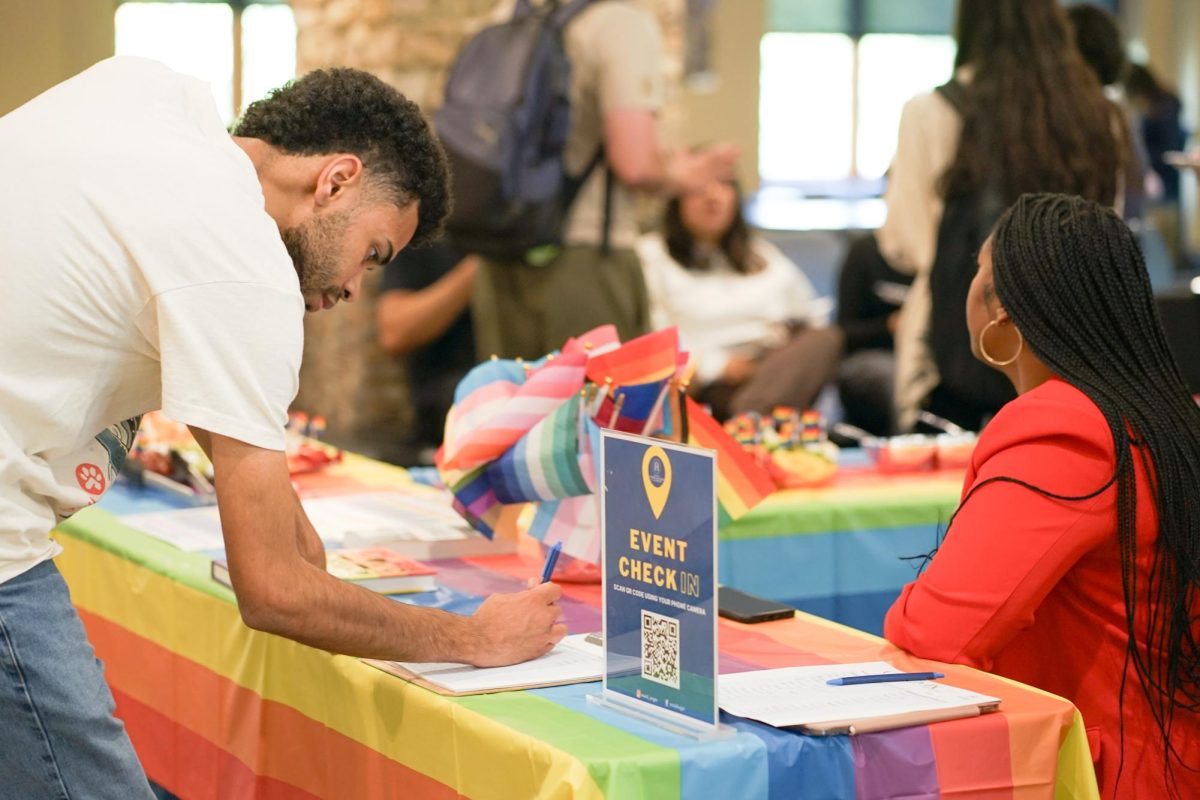Over the past several years, Augustana College has increased its international student population. As the school grows, so does the need to include more voices and representation in its student body.
On Tuesday, Oct. 31, Augustana’s Student Government Association (SGA) hosted its “Global Voices” event. The round-table format allowed students, both international and domestic, to join in conversation with their senators in SGA. This event reflects a broader goal taking shape within SGA to humanize the organization, encourage communications between students and representatives and tend to the needs of a diverse student body.
Junior Tsion Nigate, an international senator and co-chair of SGA’s international committee, began her role in SGA last year as sophomore senator and multicultural programming board co-chair. Nigate said her experience in those positions led her to rethink her goals.
“I was in SGA last year, but not as an international senator. I wanted to represent a certain group that I could make a difference in,” Nigate said. “I felt like there were a lot of problems with being an international student, and at the end of the day, you have to speak up. Nobody’s going to speak for you.”
Nigate draws on her own experience as an international student to promote the unique struggles and needs of that group.
“The wage at Augie mostly affects international students because we cannot really work off-campus. The tuition is increasing, and most international students are struggling because we cannot work outside [of Augustana] to pay,” Nigate said.
Even though all students receive the same wage, international students’ ineligibility for off-campus jobs is an obstacle that domestic students largely do not face. By advocating specifically for international students, Nigate draws attention to the ways in which equality might not relate to equity.
Being a senator means not only advocating for your constituents, but exercising creativity and hope yourself. Nigate said that she envisions an expansion of the Office of International Students and Scholarship Services (OISSS).
“One thing that I hope is for the international student office to be big enough to accommodate what the international students need. If there’s an international student having basic needs issues, the international student office should be able to provide something,” Nigate said.
Student senators have diverse ideas about how to best represent their constituents. Nigate has leveraged her lived experience to inform her role. Sophomore senator Mary Kate Hughes said that her focus is on inclusivity.
“One of my goals [when I became a senator] was to start being more inclusive,” Hughes said. “I want everybody on campus to feel like SGA is a place that supports them. If you come in for a contingency, we’re going to help you to the best of our ability.”
Inclusivity for students means not only feeling heard by their representatives, but also feeling comfortable requesting services from those representatives. SGA offers contingencies for student groups who apply and are approved for funds, granting access to money and other resources. In order for that line of communication to be most effective, students must feel like they can safely approach SGA with their wants and needs.
“I want to make sure that when I leave the Senate, whenever that may be, that I make my best effort to make everybody on campus feel like SGA is a place that supports them and that if you come in for a contingency, we’re going to help you to the best of our ability and that we’re here to support you,” Hughes said.
Hughes, in addition to her role as senator, helps to run social media and PR campaigns for the Augustana Vikettes, the school’s pom squad. Because of her experience in social media, Hughes said she believes it can be a useful tool for a group like SGA, bringing connections, polling and direct communication.
“What I’m focusing on now is making sure that people know that SGA is there to help them,” Hughes said. “I totally believe in the power of social media, and I think, through the promotion of SGA on social media and around campus, we can get more people to know about it.”
Events like “Global Voices” empower students to make connections with their senators. By attending similar events, students can voice their opinions and concerns and know that they’ve been heard. Live events aren’t the only way in which the members of SGA stay informed about the people they represent, though. Sophomore and SGA secretary Brayden Atkisson said that senators also engage in campus activities.
“Each semester, we require the senators to attend seven on campus events. Those events count towards what we call campus hours,” Atkisson said. “I think that it’s incredibly important for the senators to be required to attend things on campus because that is the constituency that they’re representing. It shows that we do have a dedication to this campus and that we are interested in what’s going on.”
Part of the importance of staying involved on campus comes from the nature of a student government. Most students are only enrolled at Augustana for four years, and few senators serve for that length of time. This means that, in order to make the most of their roles, they must be aware of complex and diverse student needs.
Student senators have a unique benefit in this area in that they are members of the same group that their constituency occupies — the student body. Their shared experiences as students promote cooperative decision-making, and thus the most widely shared student concerns are often trending topics within SGA.
“This year, I’ve seen a lot of people become a little bit more concerned regarding student living on campus,” Atkisson said. “We’ve had a pretty significant uptick in people reporting things about residence halls. The campus minimum wage is a pretty persistent issue that we hear about pretty frequently from the senators.”
Though these trends are clear within SGA, it’s not always easy for students to know just how much is getting done. Currently, those who would like more information about specific agendas are able to contact their senator directly or sit in on an SGA meeting, which are held weekly and open to student attendance. Sophomore senator Jamiah Riley said that changes are coming to address the inconvenience of learning about SGA operations.
“I would love to hear a lot more opinions on what we can do better as SGA,” Riley said. “I think we have planned a newsletter for the end of the semester about everything that we’ve done to give the constituents an idea of what we’re doing and the people that are representing them.”
For junior senator Kelly Moore, methods to increase student interaction with SGA are already in motion. While preparing for an upcoming event she’s helping run, Moore has worked to implement strategies and boost engagement.
“We’re gonna have a brew poster, we’re going to be having stuff on social media and we’re going to be [using] word of mouth,” Moore said. “Especially with the events that we’re putting on, we’re trying to open up the door for all of our students to come to us and to talk to us.”
Students interested in sitting in on SGA meetings can join their senators in Hanson room 334 on Thursdays at 7:00 p.m. Students can also reference the directory available on the SGA website to learn who their senators are.
“I always encourage people to email either the SGA account or anyone on the executive board or within the Senate,” Atkisson said. “We have a lot of different avenues that you can use to get in contact with us.”
Mary Kate Hughes is a former employee of the Observer.


